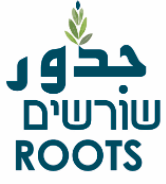
By Ahmed*, Roots
This blog is produced in collaboration with Roots – A local Palestinian-Israeli initiative for understanding, non-violence and transformation.
My name is Ahmed* and I live in the West Bank in a small town near both Hebron (inhabited by Palestinians) and Gush Etzion – a settler community (where Israelis lives).
I’m Palestinian and until five years ago – despite living under two miles (2/3km) from Gush Etzion – I’d never met an Israeli settler. As Palestinians, we just don’t talk to settlers.
It’s very much a taboo – much more than with Israelis living outside the West Bank.
Yet that all changed one day in 2015 when I was just 19 years old.
My friend asked me to join him at a local meeting – a gathering of both Palestinians and Israelis (settlers).
Settlers? Yes.
I honestly thought he was joking. But he wasn’t at all.
He’s an open-minded guy. So, when he asked me to join him – the young teenager who didn’t really know much about politics – I (much to my surprise) agreed.
Of course, I felt uncertain, worried and in all honesty; a bit scared.
Meeting with settlers? What does that mean? What would other people think about it?
I’d never been curious about settlers. I thought they were the kind of people you threw rocks at, not meet to sit and talk to about your life experiences, your dreams and feelings.
As a Palestinian, even just meeting settlers was – and still is – seen as a big “no-no”.
I was therefore obviously worried about other Palestinians – what they’d think, what they’d say, what they’d do if they found out I’d gone. But, my friend reassured me that no one would know – that it would be our secret, almost like an adventure.
So, I agreed. I wasn’t sure about it but I’d made up my mind. After all, what could go wrong?
Palestinians and settlers: Ongoing conflict

So there I was – at the very first meeting, run by Roots – a Palestinian-Israeli NGO which works to promote non-violence, understanding and reconciliation.
And in all honesty, it was completely different from what I’d expected.
We met at a place in Area C – an area under Israeli control in the West Bank. However, rather than feeling scared, I was merely in shock that we were all here together for a common purpose.
We sat with an elderly Israeli man called Myron and started to talk – a group of five together with me translating, even though my English wasn’t very good at the time!
I started to ask Myron about the legal status of Gush Etzion and what made him decide to come to live there.
He told me his “side” of the story – which we were never exposed to where I lived. He talked to me about the Jewish National Fund (founded in 1901 to buy and develop land in what was then Ottoman Palestine) and how Jews had bought the land that Gush Etzion is situated on in the 1930s.**
He also explained about the death of Jewish citizens in the Arab-Israeli war in 1948.
What? Gush Etzion? I didn’t understand…
I thought he was lying.
It was me who was the victim in this conflict. I was the one “in the right”. He couldn’t have any rights over this land…
Well, that’s how I’d always seen it at least…
However, when I got home and did some research on the history of the area, I found out that he was right. The evidence was there – land had been bought.
I read about the massacres and the killings in 1948 in Gush Etzion and discovered that there were indeed things that I’d not learnt as a child.
I was surprised. This was completely new to me.
However, I was reading from English-languages sources, rather than Arab media. And so, I discovered information that simply wasn’t being talked about in Arabic.
And that was my turning point.
Seeing the “other side”: Hearing of their grief
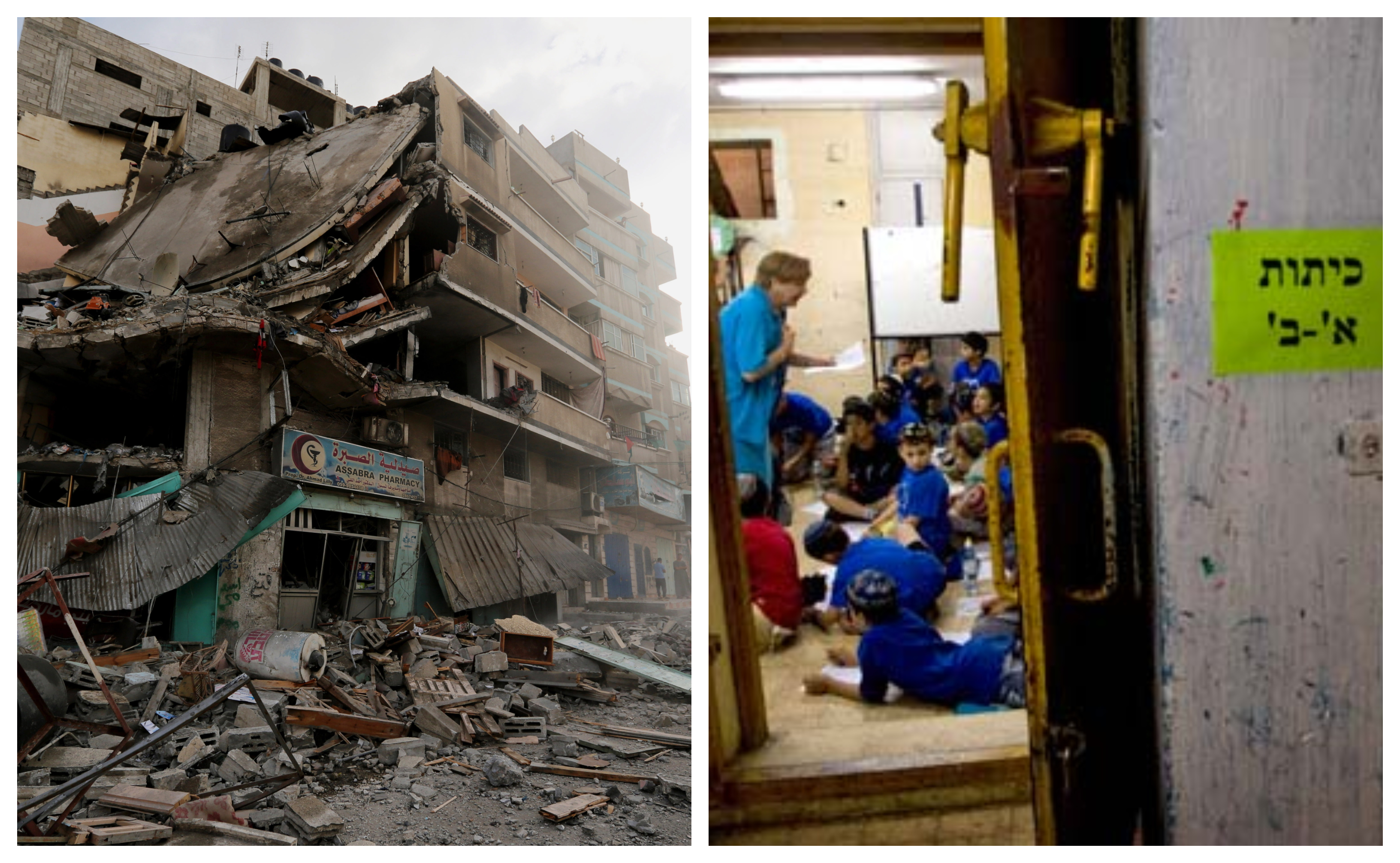
After that very first meeting, I knew I had to find out more. I didn’t know why but there was something pushing me, inspiring me to carry on.
I found out that Roots wanted to start a youth group for teenagers aged 16 to 19 and so I joined.
Right from the very first meeting, we discussed the conflict and how both people have the right to this land. This was even though I didn’t really accept the idea of a Jewish presence in the Holy Land at the time.
It didn’t feel normal to me. It was a bitter pill to swallow. And likewise, I struggled with the fact that some people also didn’t accept my right to live here and my existence as a Palestinian.
We discussed the importance of self-determination and how no one has an exclusive right to this land or to self-identify with it. And we carried on discussing difficult topics.
It was around 2013/14 – a period when there was a lot of violence. There were several stabbings (attacks on Israeli civilians) and it was a really tough period for both Palestinians and Israelis (including the Israel-Gaza conflict).
We started discussing the conflict and the violence between Israelis and Palestinians and how both “sides” feel about it.
This was the first time that I’d met an Israeli who told me that Palestinians had killed people he knew. One of the men who’d been attacked was a personal friend of his…
I was surprised. I’d never thought that Palestinians were at fault. We were the ones under occupation, so to my mind, everything was down to Israelis – certainly not us.
So, to sit and listen to an Israeli who’d felt such deep pain – due to the actions of a Palestinian – was something I’d never imagined I’d be doing…
It was an emotional moment. I looked into his eyes and I was shocked and surprised. Being there, hearing his experiences, felt surreal. Especially since I’d grown up believing that Israelis were monsters. To me, it was all about the occupation.
From then on, things obviously changed. I changed. My way of thinking changed.
I knew that I needed to look at both “sides” and realise the pain that this conflict has caused. It was a turning point.
In fact, it was more than that. Now, it wasn’t just about a conflict but myself as a person. I started to think that, the way I think of myself may not be how others see me.
I knew I had to start listening to others, to their feelings and their experiences. Not simply blame them.
Facing the Holocaust: Revisiting history
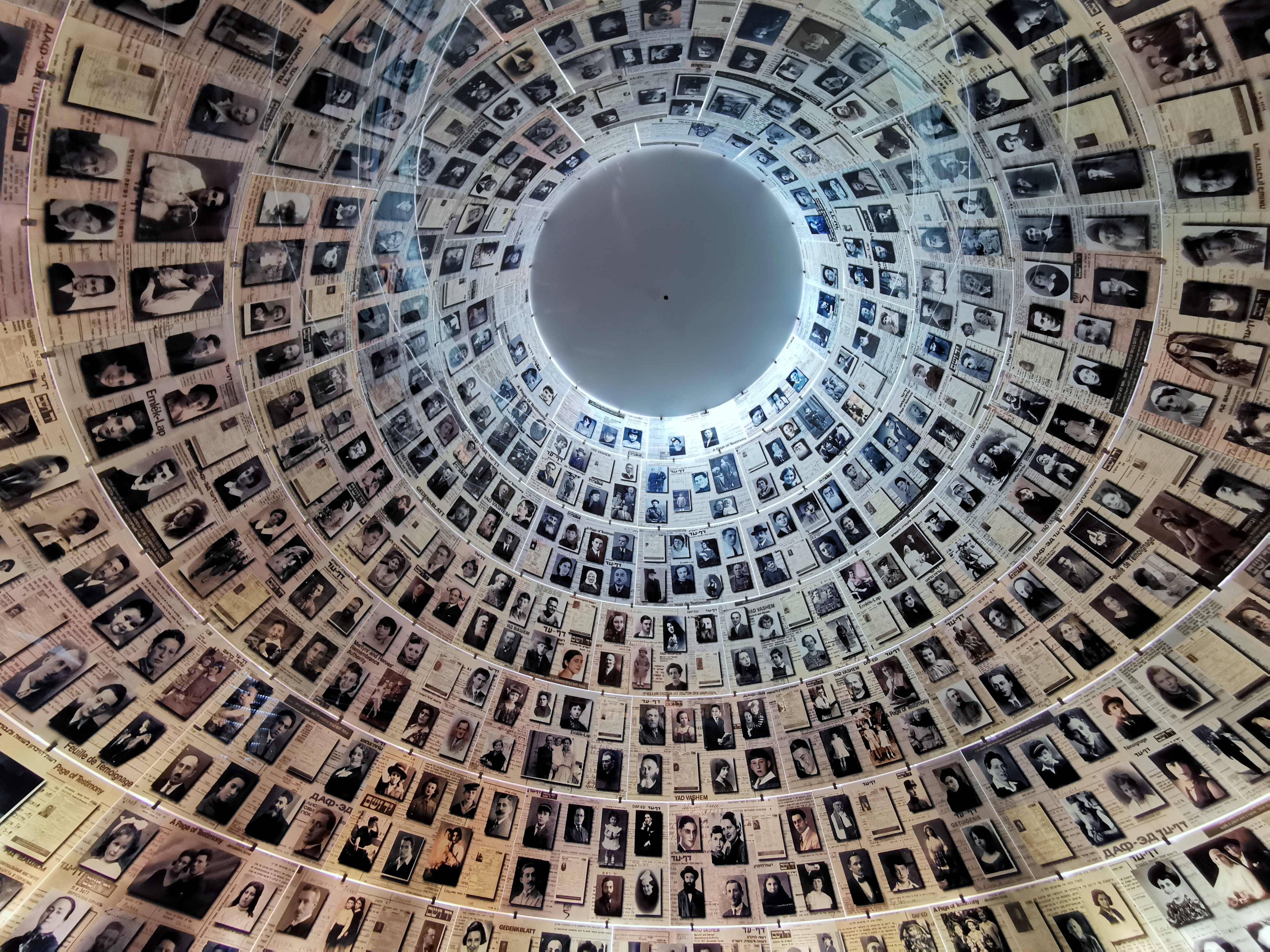
So much had already changed. I now, here I was 19 years old and getting ready to travel to Tel Aviv.
I’d never entered Israel in my life. I certainly didn’t think when I was growing up, seeing protests, rocks being thrown and people being killed that I would go on a trip with Israelis to Tel Aviv.
Why would I have taken a trip with people I perceived to be “wrong”?
Yet now, as part of the Israeli-Palestinian youth group, everything was different.
There I was in Tel Aviv. This was a life-changing moment. I quite simply don’t know the words to describe it. It was truly inspiring.
We went together to the beach. We played volleyball and ate at a restaurant. It was a beautiful experience.
I felt that I was with fellow human beings, not enemies.
Of course, it wasn’t always so carefree in the youth group. We’d discuss challenging topics too such as the Nakba, the Palestinian “exile” of 1948.
We also visited Yad Vashem – the Holocaust Memorial Museum – and this was the most life-changing experience of them all. Visiting the museum was different from simply reading about the Holocaust.
We saw videos from WWII and how the Nazis used racial “science” to exclude Jews from their dream of an “Aryan race”. We also heard Holocaust survivors speak about their experiences and I saw photos of how the Nazis mistreated Jews.
Being right there, seeing the Holocaust survivors names written – six million people – was a completely different experience.
After the trip, I stayed in the youth group until I was 20. When it was finished, I knew I didn’t want my journey to end. I also knew I wanted to get more deeply involved with Roots.
Children are the future: Building peace
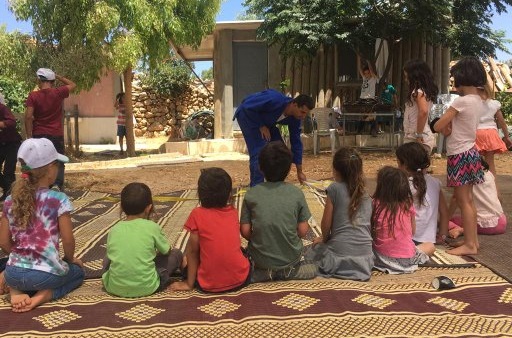
I asked the team at Roots if there were any volunteer roles, and that’s when I found out about the children’s summer camp.
I was really surprised, I’d never seen or heard of that before. To have a children’s camp for both Israelis and Palestinian children in the West Bank – the centre of conflict today – was quite remarkable.
When I was asked to volunteer, I jumped at the chance and joined as one of the coordinators.
We did a lot of activities with the children and it was an amazing experience. I felt I was somehow connected to my childhood and that I was re-living my childhood in another way – a different way from the one of difficulty I’d gone through before.
As a child, my parents didn’t allow me to go out much due to the conflict. And so, I felt that the children’s camp was somehow more about me than the children themselves.
Seeing Israeli and Palestinian children playing together made me so happy. They were just having fun. They weren’t thinking about being Israeli or Palestinian, Jewish or Muslim.
It was then that I started to believe that children are our only hope for the future, for solving the conflict.
Since then, I’ve continued working on children’s programmes. We’ve started to teach children a few words in Arabic, English and Hebrew to build communication. I also initiated a Ramadan programme.
With the current Coronavirus pandemic, we’re not running any activities on the ground at the moment. However, we are communicating through Zoom and playing videos for the children.
We’re waiting for this pandemic to pass. I am hoping it will all be over before the summer because I want the summer camps to start again.
Roots is an important part of my life. It’s taught me a lot.
The biggest lesson of all that Roots has shown me is that we need to remember that not everyone is the same. Here where I live, I used to think that all soldiers are monsters – that they weren’t even human.
I felt hate towards Israelis and Jews. But today, I see Israelis in a totally different light. I actually believe we can achieve peace for both our communities.
Now, I now longer always see myself as a victim. I never thought of myself as being on the side of an oppressor. But today, I look at myself and at “my side” and I recognise both negatives and positives.
I grew up seeing people according to my own perceptions and views. Now, I’m open to sitting with others and listening to their feelings.
My advice to people all over the world is to not let hate enter your heart. Pro-Palestinian and Pro-Israeli movements should not accept far-right activists or people who hold anti-Semitic or Islamophobic views.
We should not let this conflict we used as a proxy war between Muslims and Jews or between Far-Right and left-wing parties. We should concentrate on productive solutions that bring us together.
The Israeli-Palestinian conflict is being used by different people and different parties in a way that is hurting both people – and even further afield in Europe and across the globe.
There are people who hold antisemitic views who try to hide their feelings and opinions by pushing the Palestinian cause. And likewise, on the other side is the same, people using the conflict while they are actually Islamophobic.
What’s more important than being pro-Israeli or pro-Palestinian are the reasons behind it. If you’re pro-Israeli because you hate Muslims or you hate Palestinians then whatever you’re doing simply isn’t productive – it can’t lead to positive sustainable solutions.
And it works the other way too. If you’re pro-Palestinian because you’re actually just antisemitic, then you are simply hating others. It’s wrong.
Sometimes I feel that we’ve lost our humanity. We’re continuing this conflict, not solving it.
We’ve been living with this conflict for many years. We’ve both been victims. It’s escalated to a level that perhaps no one expected. We’re living with religious conflict, right-wing movements, conflict between the political Right vs. Left, extremism, Palestinian suicide bombings in Israel and the death of civilians in Gaza.
We should be messengers for peace. I know that the conflict is painful – especially for Palestinians and Israelis – and I know that there are many victims.
Yes, it’s hard sometimes for people to be the ones who initiate something positive, to take a step towards peace but sometimes: that first step is enough.
*Name has been changed to protect the individual’s identity
** Note from author: Ahmed would like to emphasise that he supports a two-state solution (which includes self–determination for Palestinians without military governance) but does not support the JNF as he believes that no transaction or interaction between two parties or more should materially affect others without their participation and/or agreement.
More information:
To find out more about Roots, visit their website and Facebook page.
Disclaimer:
The views expressed in this blog are solely the author’s and do not necessarily reflect those of Voice of Salam. Voice of Salam does not hold an official position on the Israeli-Palestinian conflict. Voice of Salam would like to see a future free from violence in which Israelis and Palestinians can both live in freedom, peace and security.
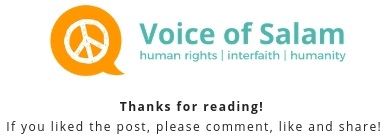
This post was originally published on Voice of Salam.

